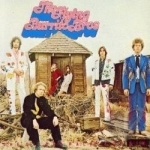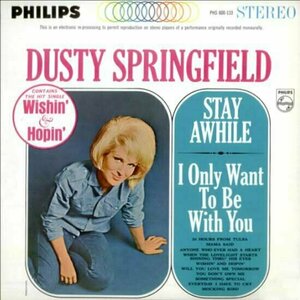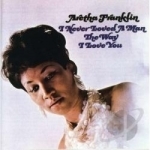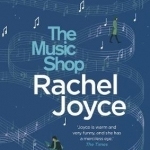Bobby Gillespie recommended Gilded Palace of Sin by The Flying Burrito Brothers in Music (curated)
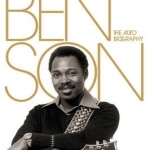
Benson: The Autobiography
George Benson and Alan Goldsher
Book
Over the span of his illustrious five-decade career, George Benson has sold millions of records,...
Real Love, No Drama: The Music of Mary J. Blige
Book
Mary J. Blige is an icon who represents the political consciousness of hip hop and the historical...
Johnny Marr recommended Stay Awhile/I Only Want To Be With You by Dusty Springfield in Music (curated)

Once in a Great City: A Detroit Story
Book
"A fascinating political, racial, economic, and cultural tapestry" (Detroit Free Press), Once in a...
Kathleen Hanna recommended I Never Loved a Man the Way I Love You by Aretha Franklin in Music (curated)

Magic Piano by Smule
Music and Entertainment
App
From Bruno Mars to Mozart, play the hottest songs! Relax your soul with beautiful sounds of piano...
Whisperin' Bill Anderson: An Unprecedented Life in Country Music
Bill Anderson and Peter Cooper
Book
Whisperin' Bill: An Unprecedented Life in Country Music presents a revealing portrait of Bill...
Hazel (1853 KP) rated The Music Shop in Books
Aug 22, 2017
From the author of The Unlikely Pilgrimage of Harold Fry comes a unique and beautiful story about music and learning how to listen. The Music Shop by Rachel Joyce takes readers on a journey through the developing music world of the late 1980s when CDs are beginning to wipe out all other means of recording music – a complete disaster for someone like Frank, the owner of the music shop, who only sells vinyl.
The book begins in 1988 in a crumbling down street where shopkeepers are barely making enough money to survive. Frank’s shop is one of the few remaining and, despite everything against him, is determined to keep going. Not only does he sell vinyl records, Frank has an empathetic gift allowing him to sense exactly what a customer needs to listen to, even though they may not realise it themselves. However, one day, Frank’s world is turned upside down by the arrival of a young German woman, Ilse Brauchmann, who faints on his doorstep.
Ilse intrigues all of the shopkeepers on Unity Street, particularly Frank’s teenaged assistant, Kit. Although Frank tries to deny it, Ilse also fascinates him to the point that he is rarely thinking of anything else. But what concerns him most is that he cannot pinpoint what piece of music she ought to listen to. When questioned, Ilse admits she knows nothing about music and begs Frank to give her lessons. These lessons have nothing to do with instruments – Frank is the least qualified to teach such a thing – but about how to listen to music. How to hear the pauses in classical pieces; understand the meaning behind Beethoven’s sonatas; feel the passion behind punk music; learn to love a number of composers for the things many people miss.
The longer Frank spends around Ilse, the more he begins to fall in love. However, love is something Frank denies himself ever since the death of his mother fifteen years previously. Written in italics are flashback chapters explaining how Frank’s love of music came about, his relationship with his mother, and how he ended up as a dead-end vinyl seller. Due to his fear of intimate relationships, Frank keeps pushing Ilse away until, one day, he realises how much he needs her. But, he may have left it too late.
The Music Shop is split into four sections, or sides (a reference to vinyl records). Side A introduces the characters and settings during a wintery January when Frank is beginning to struggle with the competition caused by the recently opened Woolworths on the nearby high street. Sides B and C focus on the development of Frank and Ilse’s friendship, the secrets they hide from each other and the foreboding sense of disaster hanging over the one-of-a-kind music shop.
As Frank begins to realise how much Ilse means to him, the sudden appearance of side D will break readers’ hearts. Whilst sides A, B and C take place in 1988, side D jumps forward 21 years to 2009. It appears Frank and Ilse never got the relationship they deserved. Two unhappy decades have been and gone, demolishing any resemblance of the way life used to be. However, because there is a side D, readers can only hope it will result in a happy ending.
The Music Shop is a love story between two quiet, modest characters whose past and present circumstances get in the way of a peaceful future. However, it is not only a piece of romantic fiction. Rachel Joyce writes a message in story format about second chances and being brave. Learning to listen does not only apply to music, it applies to hearing what other people are saying and what they are not; most importantly, the book urges people to listen to themselves.
The research undertaken for this novel is phenomenal. For starters, it is set almost thirty years ago when vinyl was only beginning to go out of fashion. The quality of music and the access people had to it was extremely different to the simplicity of today where it is possible to download everything at the press of a button. The breadth of music genre is as wide as possible. Every type of music is covered from Handel’s Messiah to Aretha Franklin and The Sex Pistols. To be able to discuss such a range without falling into stereotypes is a feat worthy of congratulating.
The Music Shop far surpasses anything Rachel Joyce has written so far. The story is fragile in a beautiful way, its delicacy causing the reader to treat it with care, rather than rush through it like some mundane piece of fiction. It will interest a whole host of readers: male and female, music lovers and those with a preference for silence. Whoever you are, be prepared to take something away from this distinctive, outstanding novel.
Hazel (1853 KP) rated The Music Shop in Books
Dec 7, 2018
From the author of <i>The Unlikely Pilgrimage of Harold Fry </i>comes a unique and beautiful story about music and learning how to listen. <i>The Music Shop</i> by Rachel Joyce takes readers on a journey through the developing music world of the late 1980s when CDs are beginning to wipe out all other means of recording music – a complete disaster for someone like Frank, the owner of the music shop, who only sells vinyl.
The book begins in 1988 in a crumbling down street where shopkeepers are barely making enough money to survive. Frank’s shop is one of the few remaining and, despite everything against him, is determined to keep going. Not only does he sell vinyl records, Frank has an empathetic gift allowing him to sense exactly what a customer needs to listen to, even though they may not realise it themselves. However, one day, Frank’s world is turned upside down by the arrival of a young German woman, Ilse Brauchmann, who faints on his doorstep.
Ilse intrigues all of the shopkeepers on Unity Street, particularly Frank’s teenaged assistant, Kit. Although Frank tries to deny it, Ilse also fascinates him to the point that he is rarely thinking of anything else. But what concerns him most is that he cannot pinpoint what piece of music she ought to listen to. When questioned, Ilse admits she knows nothing about music and begs Frank to give her lessons. These lessons have nothing to do with instruments – Frank is the least qualified to teach such a thing – but about how to listen to music. How to hear the pauses in classical pieces; understand the meaning behind Beethoven’s sonatas; feel the passion behind punk music; learn to love a number of composers for the things many people miss.
The longer Frank spends around Ilse, the more he begins to fall in love. However, love is something Frank denies himself ever since the death of his mother fifteen years previously. Written in italics are flashback chapters explaining how Frank’s love of music came about, his relationship with his mother, and how he ended up as a dead-end vinyl seller. Due to his fear of intimate relationships, Frank keeps pushing Ilse away until, one day, he realises how much he needs her. But, he may have left it too late.
<i>The Music Shop</i> is split into four sections, or sides (a reference to vinyl records). Side A introduces the characters and settings during a wintery January when Frank is beginning to struggle with the competition caused by the recently opened Woolworths on the nearby high street. Sides B and C focus on the development of Frank and Ilse’s friendship, the secrets they hide from each other and the foreboding sense of disaster hanging over the one-of-a-kind music shop.
As Frank begins to realise how much Ilse means to him, the sudden appearance of side D will break readers’ hearts. Whilst sides A, B and C take place in 1988, side D jumps forward 21 years to 2009. It appears Frank and Ilse never got the relationship they deserved. Two unhappy decades have been and gone, demolishing any resemblance of the way life used to be. However, because there is a side D, readers can only hope it will result in a happy ending.
<i>The Music Shop</i> is a love story between two quiet, modest characters whose past and present circumstances get in the way of a peaceful future. However, it is not only a piece of romantic fiction. Rachel Joyce writes a message in story format about second chances and being brave. Learning to listen does not only apply to music, it applies to hearing what other people are saying and what they are not; most importantly, the book urges people to listen to themselves.
The research undertaken for this novel is phenomenal. For starters, it is set almost thirty years ago when vinyl was only beginning to go out of fashion. The quality of music and the access people had to it was extremely different to the simplicity of today where it is possible to download everything at the press of a button. The breadth of music genre is as wide as possible. Every type of music is covered from Handel’s <i>Messiah</i> to Aretha Franklin and The Sex Pistols. To be able to discuss such a range without falling into stereotypes is a feat worthy of congratulating.
<i>The Music Shop</i> far surpasses anything Rachel Joyce has written so far. The story is fragile in a beautiful way, its delicacy causing the reader to treat it with care, rather than rush through it like some mundane piece of fiction. It will interest a whole host of readers: male and female, music lovers and those with a preference for silence. Whoever you are, be prepared to take something away from this distinctive, outstanding novel.
